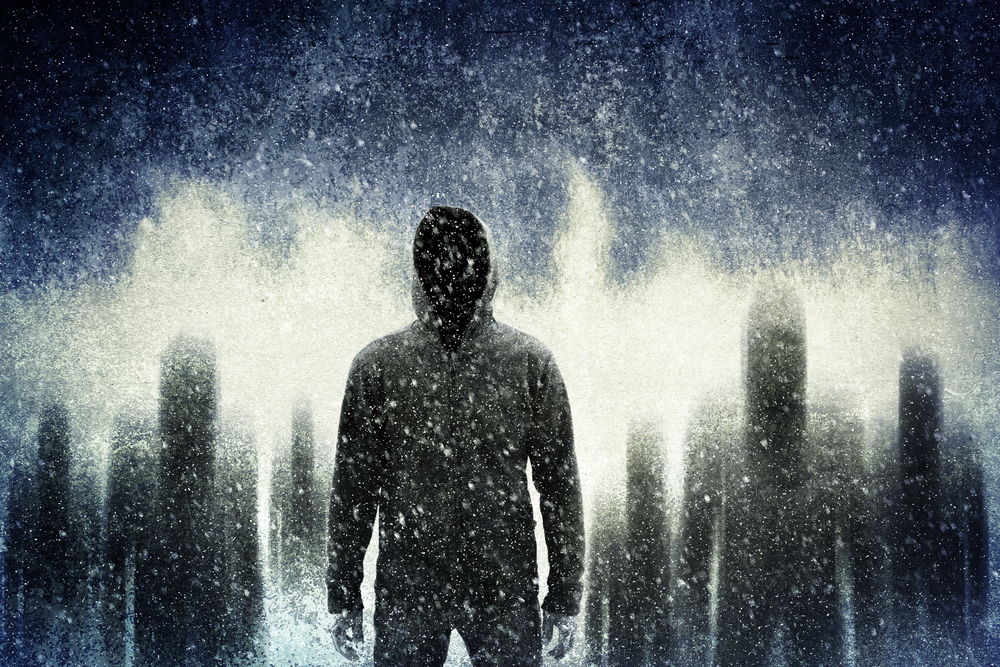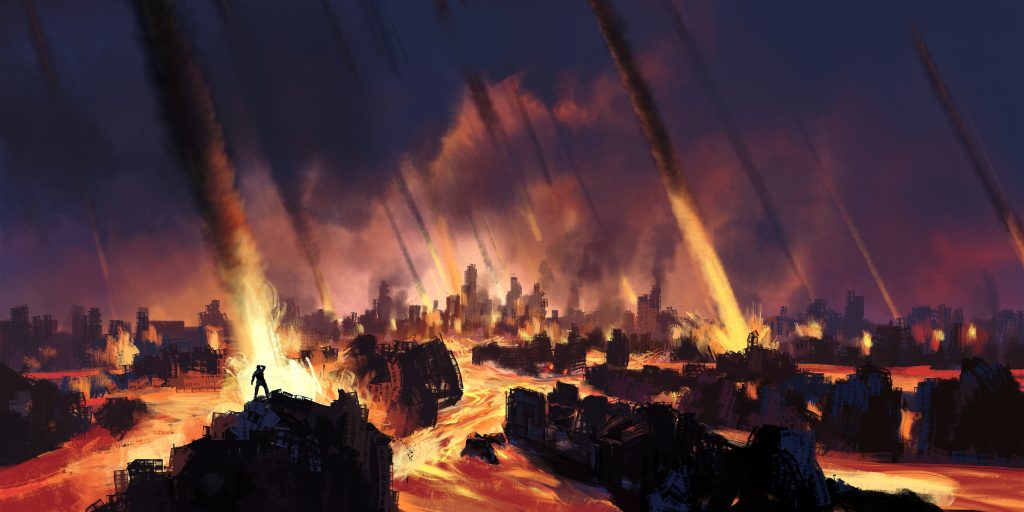Your cart is currently empty!
People Are Quitting Jobs And Selling Cars After Becoming Convinced World Will End as We Know It Tomorrow

If you thought 2012’s Mayan calendar scare was the last great doomsday countdown of our time, think again. A new prophecy has gripped the internet, and it’s not just memes and jokes circulating this time some people are taking it dead seriously. In what can only be described as a surreal blend of social media hype and religious fervor, TikTok has exploded with #RaptureTok content, where creators are predicting the end of the world on September 23 and 24, 2025. From warnings about the skies splitting open to questions like whether pets will make it into heaven, the viral storm has led to some very real consequences: people quitting their jobs, selling their cars, and even giving away their houses because they believe they won’t need them after this weekend.
The frenzy stems from a South African pastor named Joshua Mhlakela, who boldly declared that God would ‘rescue the Christians out of the world’ on Rosh Hashanah, which coincides with this September’s dates. According to him, the Earth will be shaken beyond recognition, and believers will be whisked away to the heavens in a glorious rapture. His words found fertile ground online, spawning a wave of TikTok creators sharing visions, interpretations of scripture, and more than a few panicked warnings. But what began as a niche religious prediction has mutated into a full-blown internet carnival. On one side are the true believers giving away earthly possessions. On the other are thousands of amused skeptics posting memes, mock-preparations, and jokes about whether the rapture will interfere with brunch plans. Welcome to the apocalypse social media edition.
The Rise of #RaptureTok
It all started on YouTube, when Pastor Joshua Mhlakela sat down with creators Innocent & Millicent Cent and delivered his bold prediction: the rapture was set for September 23 and 24, 2025. His declaration that he had seen Jesus “sitting on his throne” and heard him say “I am coming soon” was enough to electrify certain corners of the Christian internet. And when this prophecy collided with TikTok’s endlessly creative platform, a new subculture was born: #RaptureTok.
#RaptureTok quickly spiraled out of niche territory, finding its way onto TikTok’s For You Page where it spread far beyond faith-based audiences. Videos appeared of people nervously explaining why they were quitting jobs or getting rid of belongings, certain they wouldn’t need them come Monday.
Others posted solemn warnings, urging friends and strangers alike to prepare for divine judgment. But mixed in with the earnest content were waves of parodies, duets, and memes. Some users posted staged piles of clothes on the floor to mimic “raptured bodies.” Others offered jokes about “heaven outfits,” asking whether sweatpants would be acceptable attire for the afterlife.
The memes spread to Twitter (now X) and Instagram, with captions like “Apparently the rapture is scheduled for this weekend hope it doesn’t interfere with brunch.” Another viral tweet joked: “Not true. The new Paul Thomas Anderson film is coming out, God wouldn’t do me like that.” Between satire and sincerity, #RaptureTok became less about theology and more about internet culture’s ability to remix fear into comedy.
Selling Cars, Quitting Jobs, and Giving Away Houses

As funny as it may sound to scroll through rapture memes, some people are taking this prophecy alarmingly seriously. TikTok user Tilahun Desalegn announced he had sold his five-year-old car, explaining he wouldn’t be needing it since he was “catching a flight to heaven.” Another woman named Gehl went even further, posting that she had given away her earthly possessions and even transferred the deed to her house because “none of this material stuff will matter when I get raptured.”
These aren’t isolated incidents. Reports surfaced of people quitting long-term careers, convinced they’d be “out of here” before the next work week. Comedian Kevin Fredericks, observing the trend, joked that believers were even making “post-rapture kits” for those left behind like a care package for the damned. While Fredericks poked fun, his point highlights just how literally some are taking the prophecy. Cars, clothes, jobs, houses all disposable if you think the world will be ending in days.
It wouldn’t be the first time in history that doomsday predictions caused people to rearrange their entire lives. From the Millerites in the 1840s to the Heaven’s Gate cult in the 1990s, the promise of a definitive date for the end of the world has always been enough to convince some to burn bridges, ditch responsibilities, and gamble everything on faith. But unlike past predictions, this one is unfolding in the viral age of TikTok and Twitter, where every choice no matter how extreme—is broadcast to millions.
Memes, Skeptics, and the Comedy of Doom

Of course, the internet being the internet, not everyone is solemnly preparing for their grand ascension. For every TikTok warning viewers to repent, there’s another joking about what snacks to bring to the rapture. Users left staged shoes and folded jeans on the floor, pretending loved ones had already been taken. Pet owners begged online for assurance that their dogs and cats would be allowed into heaven, with one user joking: “If my dog isn’t coming, I’m not going.”
On X, one person quipped: “Not before pay day. Please can they wait?” Another mused about the logistics: “What time zone is it happening in? Because there are 24 time zones on Earth, 38 if you count the half-hour ones. No man knows how you all know.” The timing question alone has become a running gag: would the rapture hit Australia first? Would Californians get a few bonus hours to repent before the divine evacuation began? The humor cuts through the panic, offering a coping mechanism for many who find themselves scrolling endlessly through doomsday predictions.
But behind the comedy lies a darker undercurrent. Experts have warned of “rapture anxiety,” a form of religious trauma that leaves people in genuine distress over the idea of missing salvation. For those raised in environments where the rapture was preached as imminent, predictions like Mhlakela’s can trigger old fears and mental health spirals. It’s a reminder that while the memes are funny, there’s a serious human cost to viral doomsday prophecies.
Doomsday Predictions: A Long History of Being Wrong

For as long as humans have told stories, someone has been predicting the end. The Mayan calendar in 2012. The panic of Y2K in 2000. The predictions of Jeane Dixon, who foresaw apocalypse in 2020. Even going back centuries, prophets, preachers, and cult leaders have declared the end was near only for life to roll on, stubborn as ever.
Religious scholars often point out that biblical texts themselves warn that “no one knows the day or the hour” of the rapture, a verse that seems to contradict the certainty with which modern prophets declare their dates. Yet despite centuries of failed predictions, the allure remains irresistible. There’s something intoxicating about believing you are living in the final chapter of history, that your generation will witness a cosmic event no one else has. It makes life feel urgent, significant, and loaded with divine purpose.
But when the dates come and go, believers are often left to grapple with disappointment, embarrassment, and disillusionment. Some double down, convincing themselves the prophecy was only slightly off and the new date is just around the corner. Others walk away entirely, chastened by the realization that they were wrong. As one TikTok believer promised in advance: if September 25 comes and he’s still here, he’ll post an apology video admitting he was deceived. Internet history is littered with similar retractions.
Apocalypse as Entertainment

What sets #RaptureTok apart from earlier doomsday scares is its hybrid of faith, fear, and performance. TikTok thrives on dramatics, on packaging personal stories for maximum effect, and the rapture prophecy has become another stage for that theater. Some creators play it completely straight, sharing scripture and trembling warnings. Others half-jokingly announce they’ve given up their jobs while filming themselves laughing nervously into the camera. A few embrace satire so fully that it’s impossible to tell whether they’re trolling or truly committed.
This ambiguity the blend of belief and parody is what keeps audiences hooked. In a way, it doesn’t matter whether the creators themselves are serious. The spectacle is compelling regardless. Watching someone sell their house because they think they’re ascending to heaven tomorrow feels like reality TV merged with theology. Scrolling through memes of empty shoes and “heaven fits” feels like watching the world’s biggest inside joke unfold in real time.
And that’s the paradox of doomsday in the digital age: it’s both terrifying and entertaining, a source of anxiety and a carnival of humor. Even if no one is actually lifted skyward this weekend, the collective memory of #RaptureTok will linger as another bizarre chapter in internet folklore.
Tomorrow Never Ends (Until It Does)
If history teaches us anything, it’s that tomorrow almost always comes. Predictions of the rapture have failed every time before, and the odds are overwhelming that life will continue as usual after September 24, 2025. People will wake up, go to work, drive the cars they didn’t sell, and laugh about the hysteria that consumed a corner of TikTok for a few wild weeks. For those who gave up jobs or possessions, there may be regret, embarrassment, or a need to rebuild. For the rest of us, there will be memes to scroll, screenshots to share, and stories to retell about the time the world nearly ended again.
But behind the humor lies a cautionary tale. Viral predictions can spread fear, cost people livelihoods, and even harm mental health. They also reveal just how powerful collective imagination can be when amplified by social media. In the strange theater of the internet, the apocalypse doesn’t need to arrive to feel real. All it takes is a camera, a prophecy, and a few million people willing to watch.
So as September 23 and 24 pass, perhaps the real lesson is this: whether or not the world ends, the human appetite for stories about its end never will. Tomorrow may not bring rapture, but it will certainly bring more content.
